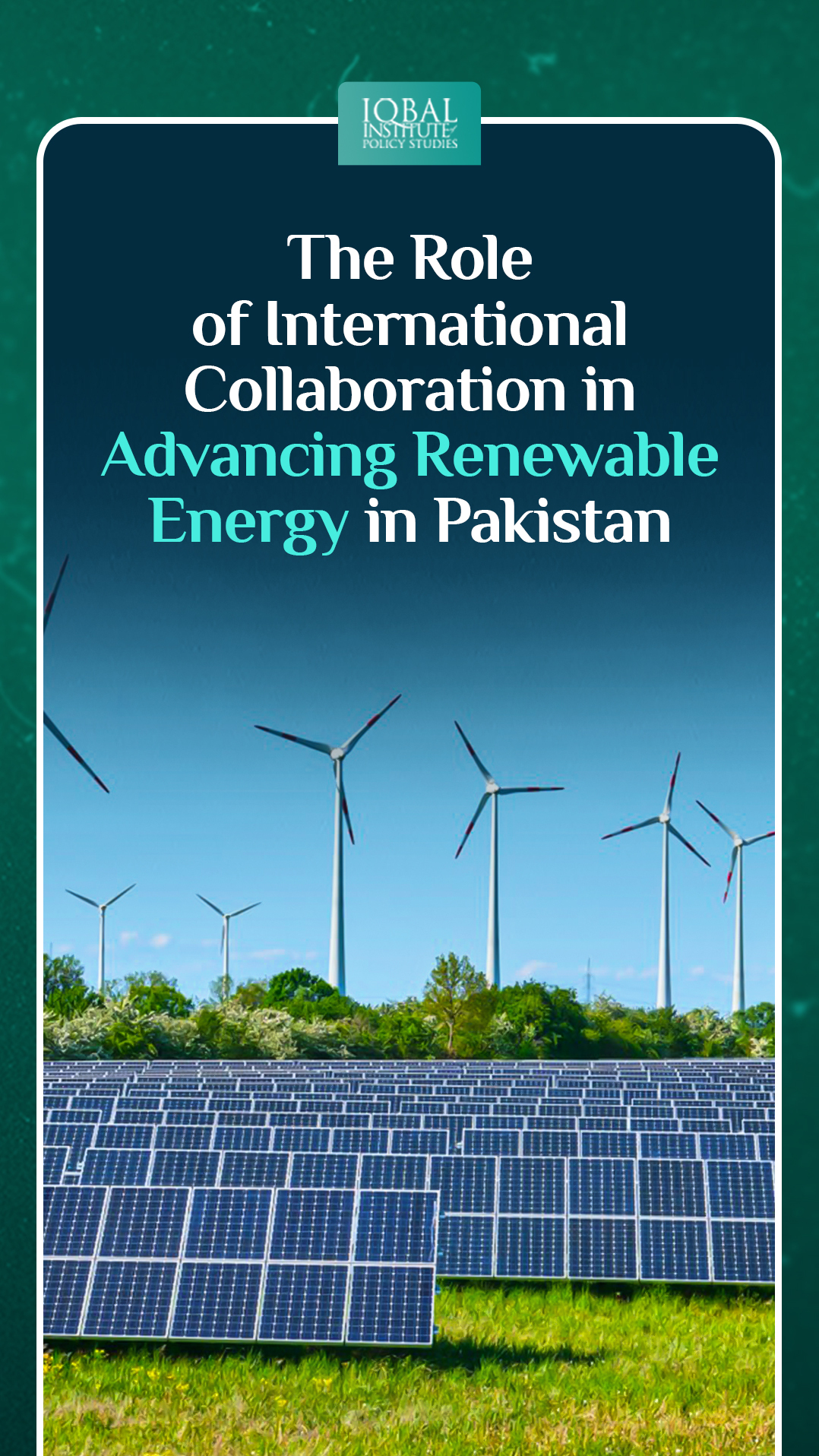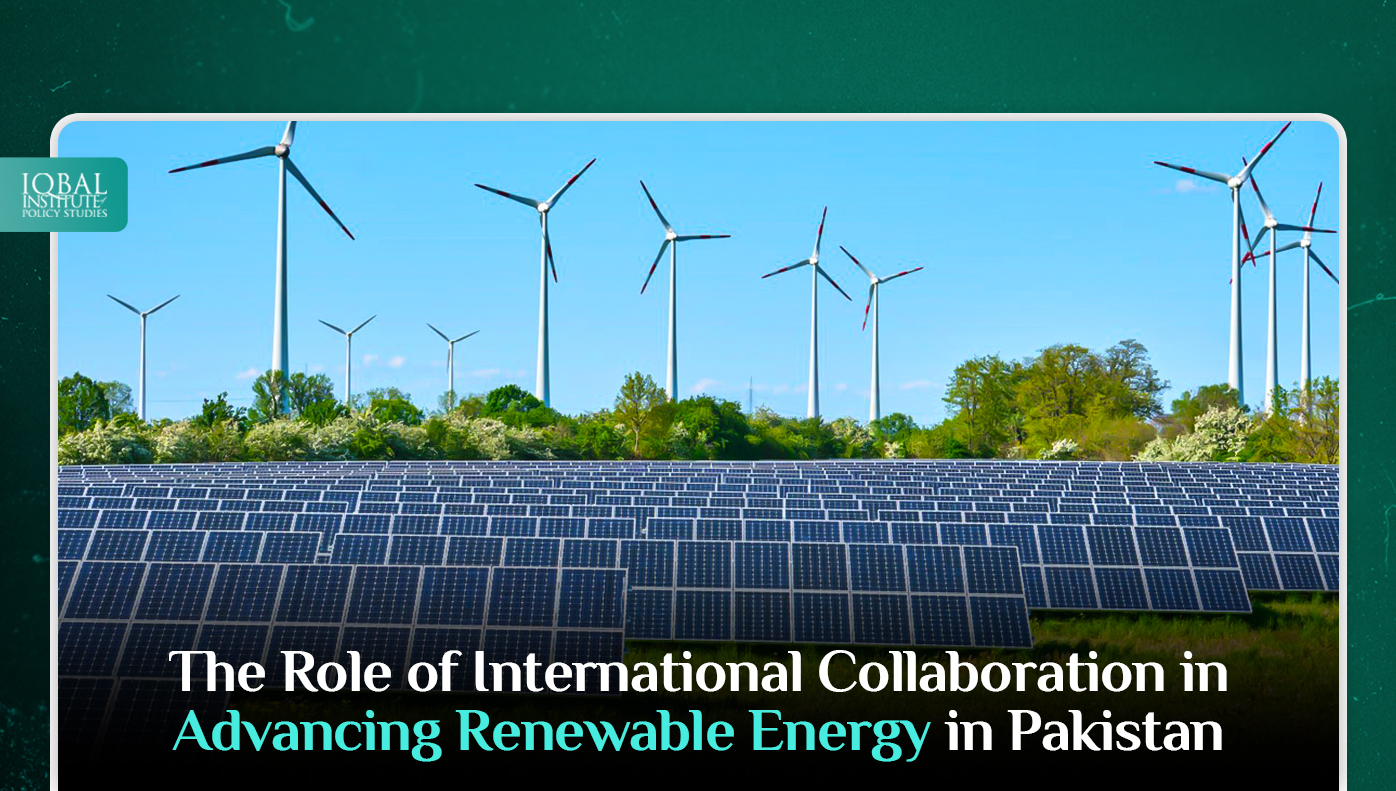Renewable energy represents the cornerstone of sustainable development worldwide, and Pakistan has embraced this vision with fervor. As a nation grappling with a growing population, expanding industrialization, and surging energy demands, Pakistan recognizes the urgency of shifting towards renewable energy sources to meet its power requirements while simultaneously diminishing its carbon footprint. In this monumental journey, international collaboration assumes a pivotal role, bringing expertise, technology, and financing to expedite Pakistan’s transition towards a cleaner and more sustainable energy landscape.
The Energy Crisis in Pakistan
Pakistan has been plagued by a persistent energy crisis for decades, characterized by frequent blackouts, load shedding, and an excessive reliance on fossil fuels. These enduring challenges have severely hindered economic growth and the quality of life for its citizens. Acknowledging the dire need to diversify its energy mix, reduce dependence on imported fossil fuels, and mitigate the environmental ramifications of energy production, the Pakistani government is resolutely pursuing renewable energy alternatives.
The Potential of Renewable Energy
Pakistan boasts a wealth of renewable energy resources, including solar, wind, hydropower, and biomass. When harnessed efficiently, these resources can provide a consistent and clean source of energy. Solar energy, in particular, holds immense potential due to Pakistan’s geographical location, which receives ample sunlight year-round.
International Collaboration: A Catalyst for Change
International collaboration serves as a catalyst for Pakistan’s renewable energy transition through various avenues:
Investment and Financing
Foreign countries and organizations have invested significantly in Pakistan’s renewable energy sector, providing grants, loans, and partnerships that foster the development of renewable energy infrastructure and projects, rendering them more economically viable.
Technology Transfer
Collaborations with international partners facilitate the transfer of advanced renewable energy technologies, equipment, and best practices, thereby expediting the deployment of renewable energy projects and ensuring their operational efficiency.
Capacity Building
International collaborations foster knowledge sharing and capacity building through training programs, workshops, and technical exchanges. Local engineers and technicians acquire expertise in operating and maintaining renewable energy systems.
Policy and Regulatory Support
Foreign governments and organizations often assist Pakistan in crafting favorable policies and regulations for renewable energy. This includes incentives such as tax breaks, feed-in tariffs, and net metering to incentivize investment.
China-Pakistan Economic Corridor (CPEC)
One of the most substantial international collaborations in Pakistan’s renewable energy sector is the China-Pakistan Economic Corridor (CPEC). Under this flagship project, China is making significant investments in Pakistan’s energy infrastructure, including renewable energy initiatives. Several large-scale solar and wind farms have been established with Chinese assistance, making a significant contribution to Pakistan’s renewable energy capacity.
The Impact on Energy Security and Climate Change
International collaboration in advancing renewable energy in Pakistan carries profound implications:
Energy Security
Diversifying the energy mix with renewable sources enhances Pakistan’s energy security by diminishing its dependence on imported fossil fuels, thus mitigating the impact of price fluctuations in global energy markets.
Climate Change Mitigation
Transitioning to renewable energy sources reduces greenhouse gas emissions, aligning Pakistan with global efforts to combat climate change. This helps Pakistan meet its commitments under international agreements such as the Paris Agreement.
Economic Growth
A thriving renewable energy sector attracts foreign investment and creates jobs, contributing significantly to economic growth and poverty reduction.
Challenges in Advancing Renewable Energy in Pakistan
While remarkable progress has been achieved, several challenges must be addressed:
Infrastructure Development
Developing the necessary infrastructure to harness renewable energy efficiently remains a significant challenge, necessitating continued international support.
Grid Integration
Integrating renewable energy into the existing grid system and ensuring its stability requires substantial investments in grid infrastructure and smart grid technology.
Financing Mechanisms
Establishing sustainable financing models and mechanisms is essential to attract private sector investments and alleviate the burden on public finances.
Policy Consistency
Maintaining consistency in renewable energy policies and regulations is paramount to provide confidence to investors.
The Way Forward
In charting a path towards a renewable energy future, Pakistan must:
Invest in Infrastructure
Continuously invest in infrastructure development, particularly in grid enhancements and storage solutions to accommodate renewable energy fluctuations.
Develop Robust Financing Models
Collaborate with international organizations to create robust financing models that encourage private sector investments in renewable energy projects.
Strengthen Local Capacities
Focus on enhancing the capabilities of local engineers and technicians through training programs and knowledge sharing to ensure sustainable operation and maintenance of renewable energy installations.
Promote Research and Innovation
Encourage research and innovation in renewable energy technologies to stay at the forefront of advancements in the field.
Foster Policy Consistency
Maintain a stable policy and regulatory environment to provide investors with a predictable framework for their renewable energy projects.
Conclusion
International collaboration stands as a linchpin in Pakistan’s journey towards a renewable energy future. By leveraging foreign expertise, technology, and financing, Pakistan can tap into its abundant renewable energy resources, reduce its carbon emissions, and secure its energy future for a burgeoning population. The partnerships formed through initiatives like CPEC and bilateral agreements have set the stage for a sustainable and prosperous energy future in Pakistan, with far-reaching implications beyond its borders. This collaboration serves as a powerful testament to the potential of unified efforts in addressing global challenges such as energy security and climate change. Pakistan’s pursuit of renewable energy offers a beacon of hope, showcasing how nations can collaborate to create a cleaner and brighter future for all.
This article is written by Radma Nouman. Radma is a research analyst at the Iqbal Institute of Policy Studies (IIPS).



Leave a Reply